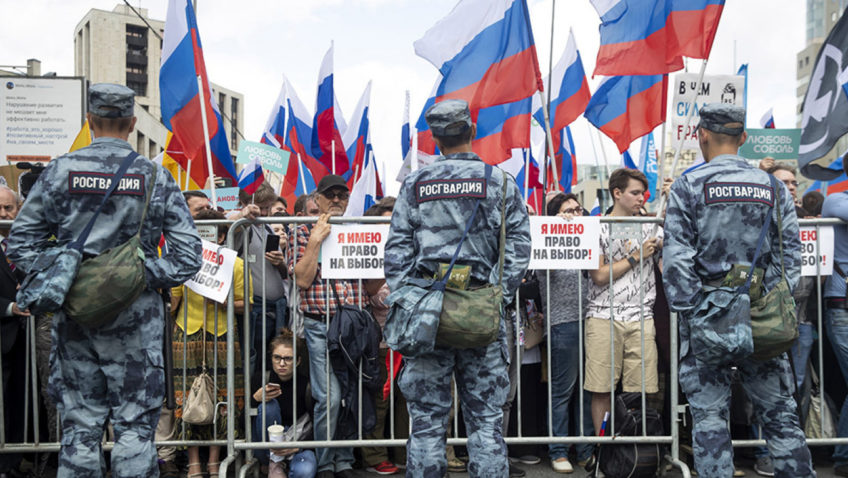Every Sunday, The Vostokian brings you the most important pieces of news from the Balkans and Eastern Europe!
Compiled by Hristo Voynov and Eva Jovanova
1. Massive protests continue against the Russian state over upcoming elections for the Moscow City Duma (or parliament), where many opposition politicians have been disqualified over a lack of petitioned support, which many claim is a lie. So far, 23000 arrests have been made during these weekly protests. The Kremlin is interested in tightening laws regarding political rallies in response to the protests which will make it limit the range of protest, such as strictly defining their location and allowing for arrests of those that do not fully comply. The elections in question are scheduled for September 8th, giving a whole month of possible escalation before these protests have a reason to end.
2. North Macedonia is shaken by a so-called extortion scandal. So far, three audio recordings were published by an Italian newspaper La Verita in which conversations between the Macedonian businessman Orce Kamcev who was under house arrest for some time and the TV host Bojan Jovanovski (aka Boki-13) talk about the possible acquittal of the businessman by the Special Prosecution (SJO). The Special Prosecution was established in 2015 to investigate mostly political corruption, and, paradoxically, is currently under the spotlight of a corruption scandal itself. The chief Special Prosecutor, Katica Janeva, is also a part of the audio recordings, in which she tells Jovanovski to assure Kamcev that she has everything “under control,” and that the Prime Minister won’t cause any trouble.
3. The Speaker of the lower house of Poland’s parliament resigned over criticisms that he used government funding and planes to transport his family for personal reasons. He claimed his actions were fully legal, but that he is resigning because of social expectations. He comes from the ruling Law and Justice party. His resignation may affect the party’s chances in the upcoming October 13th elections, because the party has focused much of their efforts on portraying the main opposition party, Civic Platform, as corrupt during their reign.
4. Croatian President, Kolinda Grabar-Kitarovic, announced her plans to run again in the next presidential election. Many other politicians have already announced their candidacy in the presidential election which is going to take place by the end of the year. What was surprising for the current president’s announcement was the fact that she did it this Friday in an interview for the right-wing weekly newspaper, Hrvatski tjednik. The newspaper had previously denounced her as a “shameless supporter of Serbian lies.” She hinted at running again in an address she gave this Monday at the official ceremony in Knin marking the anniversary of the Operation Storm, the last major battle of the Croatian War in 1995.
5. LGBT rights appear to be growing in Czechia, which will host its 9th annual pride parade, celebrations of which will include the LGBT flag being flown in Prague’s town hall. Meanwhile, in Hungary, the Mi Hazánk(Our Homeland) party is requesting data regarding the Pride march that occurred in March. Mi Hazánk said their activists were not allowed in the march by police, being discriminated against because of their “looks and clothing” that didn’t conform with the Pride look. Mi Hazánk broke away from Jobbik late last year and have formed a far right party while Jobbik has tried to appeal to a more mainstream audience. The ruling FIDESZ party banned a march that Mi Hazánk organized against a Roma settlement earlier in the year, which Mi Hazánk says the reasoning of which should have also been used to deny the pride parade.
6. Kosovo might be headed to a snap election soon. The Speaker of the Kosovo Assembly, Kadri Veseli, refused to give a nomination for a new Prime Minister after the outgoing Kosovo Prime Minister, Ramush Haradinaj, resigned on July 19. Haradinaj resigned over being called for questioning by the Specialist Prosecutors’ Office in The Hague about war crimes he might have committed in the 1990s. This Monday, the Chairmanship of the Assembly might schedule a motion of no confidence in the government. If such a motion is approved, Kosovo will have to schedule snap elections within the next 45 days. All political parties in the Assembly, including members of the parliamentary majority, believe that a snap election would be a better choice than a nomination by the Speaker.


0 comments